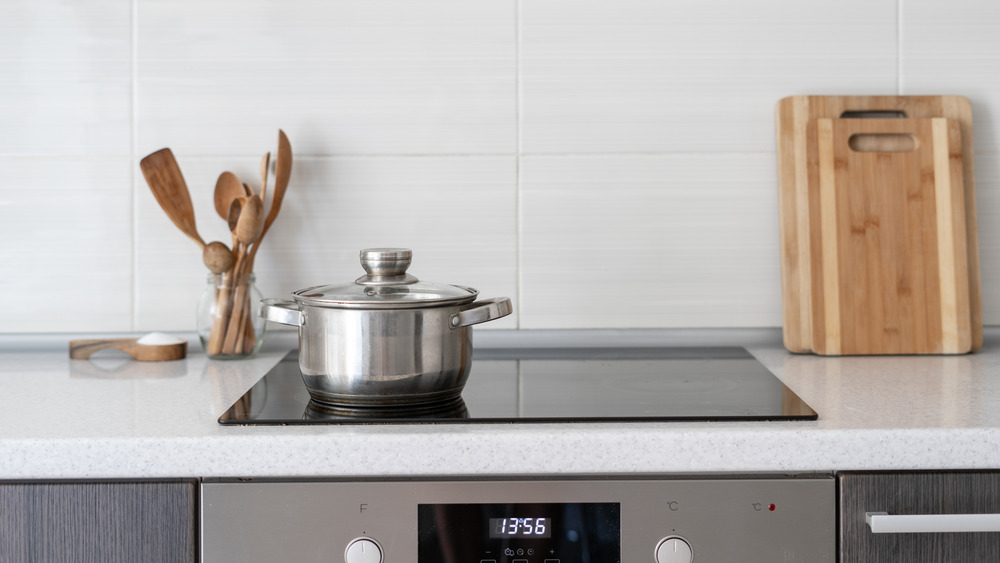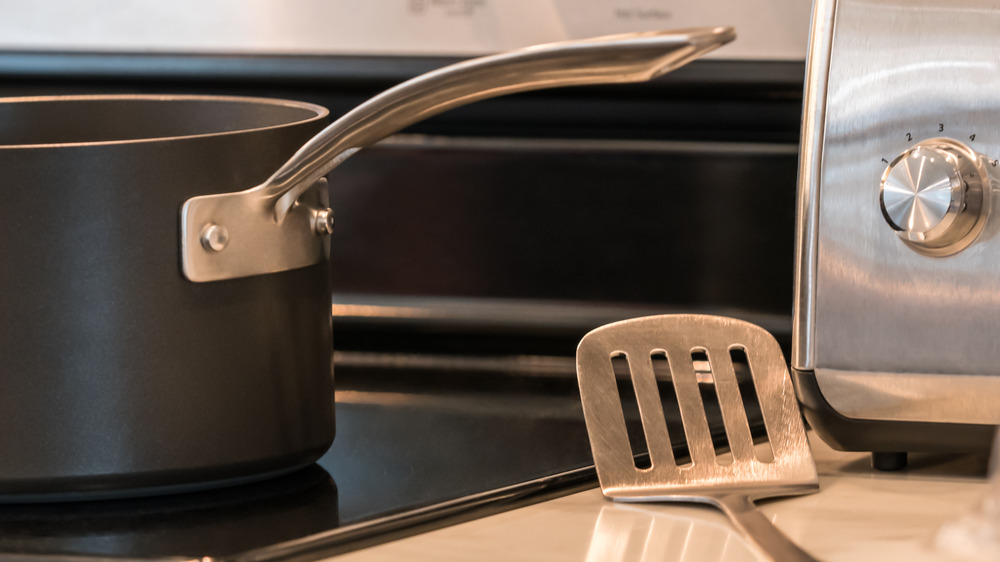The Dangerous Glass Stovetop Mistake You Should Never Make
It may seem like no big deal to remove the lid from your bubbling pot of soup and simply place it on the cool stove surface area nearby while you stir your dish or add in a dash of seasoning. After all, it only takes a few seconds, right? Well, this simple act that you'd likely not think twice about can actually have disastrous consequences and potentially cause your stovetop to shatter.
This happens for two main reasons, according to Taste of Home. One is simply the temperature differential, as the piping hot lid is significantly hotter than the area of the stove you place it on. This reason isn't particular to pot lids, as placing any kind of hot item, even a casserole dish right from the oven, on a cold cooktop could lead to shattering (via SFGate).
The second reason specific to pot lids is that the heat can actually create a vacuum seal between the pot lid and the stovetop. This pressure can cause it to shatter, sending those sharp glass shards everywhere — definitely not something you want occurring when you're trying to whip up a quick dinner.
The Frugal Girl documented this exact accident happening, from the suction fusing the stove lid to her stovetop, to an attempt to cool it down, to the final result of an irreparably broken stovetop.
Keeping your glass stovetop in peak condition
It may seem like a glass stovetop is easier to clean, given the smooth surface, but there are a few things you should consider when it comes to keeping your stovetop in mint condition.
The first is examining your choice of cookware. Something like cast iron, while incredible to cook with, can have a rough texture that may be too abrasive for glass stovetops (via The Spruce). You may even want to be careful when handling your pots. If you have a heavy pot filled with a bubbling sauce or a heavy piece of meat, quickly dragging it off the burner rather than lifting it can cause scratches to form on the sleek surface.
The level of care extends to your cleaning choices as well. It may be tempting to use something abrasive such as steel wool or even a scrubbing sponge to get off any cooked-on food bits. Alternatively, you may resist those tools, yet use a serious amount of elbow grease trying to get those pesky bits off your sleek stovetop. Be very careful with both. A light touch with a non-abrasive tool is the way to go with glass stovetops (via CNET). As Reader's Digest reports, there are cleaning products designed specifically for glass cooktops. While it may seem burdensome or expensive to add another few items to your cleaning list, it's far cheaper in the long run than using the wrong products and ruining your stovetop.

